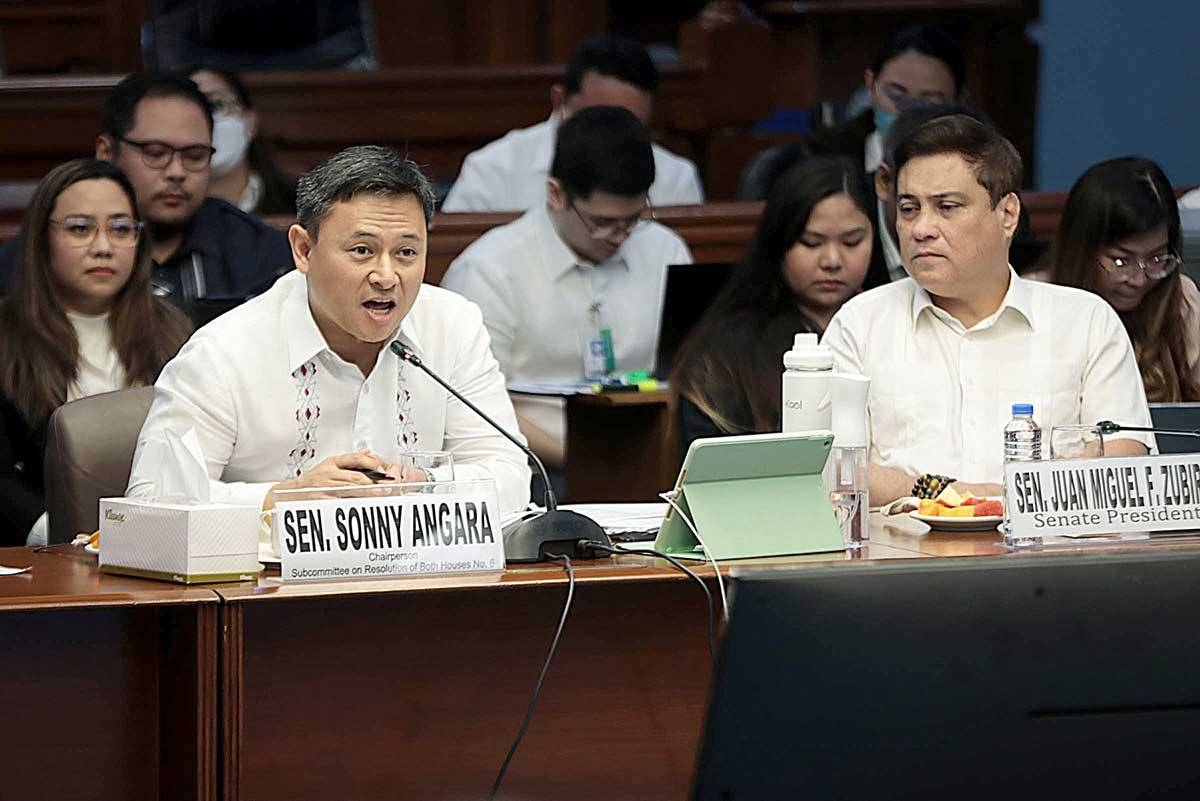SENATE President Juan Miguel “Migz” Zubiri said Monday the senators would not set a deadline for amending economic provisions of the Constitution.
Zubiri assured the public the Senate would carefully deliberate the amendment proposals and come out with “the best possible outcome for the people.”
“We must discuss this [proposed revisions] with all members of society, not just our learned luminaries here, as well as different sectors that will be affected by the most amendments of our Constitution,” he said

The Senate Subcommittee on Constitutional Amendments and Revision of Codes, led by Sen. Juan Edgardo “Sonny” Angara, held its first public hearing on Resolution of Both Houses (RBH) 6, which limits the amendments to economic provisions.
Zubiri said the Senate “is working very hard to listen to the clamor of certain sectors to look at and revisit” the Constitution.
“But we will not be falling into a trap of any deadline because to discuss such an important matter needs time; it needs study,” he said.
“It cannot be rushed like any other regular bill that is just approved without thinking,” Zubiri said.
Addressing Angara, Zubiri said, “The timeline is in your hands if you feel it necessary that we must discuss this with all members of society, not only our learned luminaries here as well as different sectors that will be affected by proposed amendments to our Constitution.”
“Let us not listen to the noise. Let us be above the fray,” he said, referring to the impassioned debate over the ideal method for introducing changes to the Constitution.
The Senate as an institution “should be men, statesmen and women that will always look at the best possible outcome for our country not for our localities but for our country, and therefore let’s filter out the noise and focused on the work at hand,” Zubiri said.
Vote separately
Meanwhile, Sen. Robinhood Padilla on Monday filed a resolution pushing for the Senate and the House of Representatives to vote separately in amending the 1987 Constitution.
Under his Resolution of Both Houses 7, Padilla proposed that Section 1 of Article XVII be amended to allow any amendment to or revision of the 1987 Constitution to be proposed by Congress “by a vote of three-fourths of both Houses in joint session assembled, voting separately; or a constitutional convention.”
“There is a need to amend the aforementioned provision in order to be consistent with the intention of the framers of the Constitution to adopt a bicameral legislature and to leave no room for interpretation as to the manner of voting which over the years have caused disputes among both the Senate and House of Representatives,” he said in a statement.
Section 1, Article XVII of the 1987 Constitution states: “Any amendment to, or revision of, this Constitution may be proposed by: (1) The Congress, upon a vote of three-fourths of all its Members; or (2) A constitutional convention.”
Padilla said the issue of voting jointly or separately must be resolved before Congress tackles other aspects of amending the Constitution.
He agreed with the majority of the members of the House of Representatives pushing to amend the economic provisions of the Constitution “to remove stumbling blocks to progress.”
Padilla cited the Foreign Direct Investment (FDI) Attractiveness Scorecard in 2020, which showed the Philippines in the 13th spot among the 14 economies in the Asia Pacific.
WITH PNA
